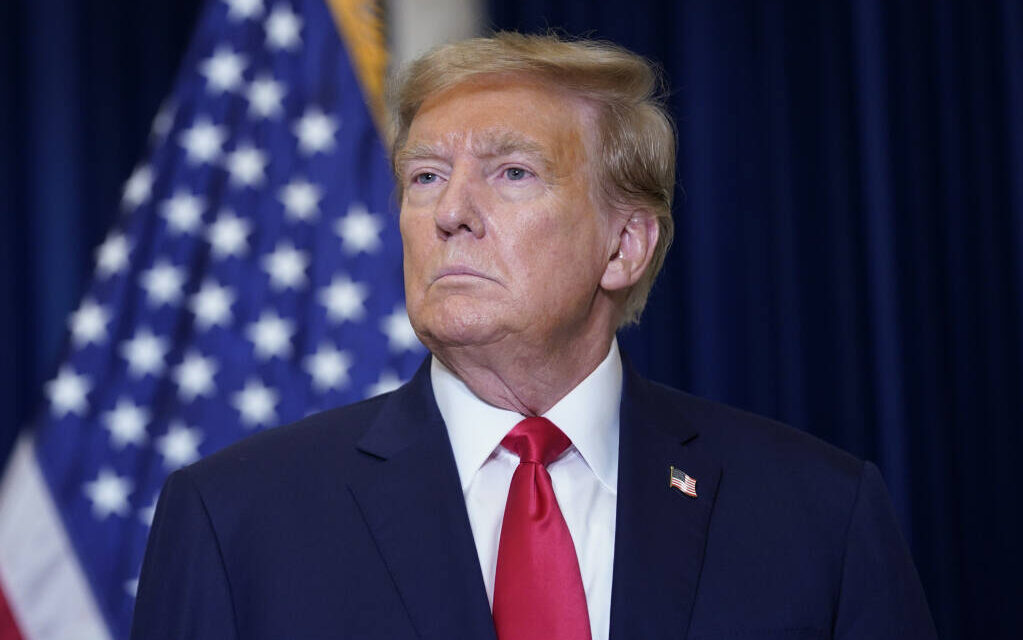By Ashleigh Fields
AFRO Assistant Editor
afields@afro.com
Former president Donald Trump can be held accountable and tried as a criminal for encouraging the Jan. 6, 2021 insurrection at the U.S. Capitol. The U.S. Court of Appeals for the District of Columbia Circuit ruled against his petition for presidential immunity on Feb. 6, sparking an uproar from Trump’s community of supporters and his campaign manager alike.
“Prosecuting a president for official acts violates the Constitution and threatens the bedrock of our Republic,” said Trump’s campaign spokesperson, Steven Cheung. “President Trump respectfully disagrees with the D.C. Circuit’s decision and will appeal it in order to safeguard the Presidency and the Constitution.”
The team has repeatedly argued that he cannot be tried for his actions while in office unless impeached or convicted by Congress. Trump faced the U.S. Senate for an impeachment trial on Feb. 13, 2021, where 57 senators voted to convict him and 43 were in favor of acquittal. However, the decision to indict him fell short of the 10 votes necessary to secure two-thirds of the U.S. Senate’s approval.
Trump’s team claims that to be tried again in criminal court is a violation of his constitutional rights under the double jeopardy clause. The line of reasoning was not upheld by the three panel judges selected by President Joe Biden and former president George H.W. Bush.
“For the purpose of this criminal case, former President Trump has become citizen Trump, with all of the defenses of any other criminal defendant,” the panel wrote. “But any executive immunity that may have protected him while he served as president no longer protects him against this prosecution.”
Court documents state that Trump is in violation of four criminal statutes. The report lists them as, “(1) conspiracy to defraud the United States by overturning the election results, in violation of 18 U.S.C. § 371; (2) conspiracy to obstruct an official proceeding — i.e., the Congress’s certification of the electoral vote — in violation of 18 U.S.C. § 1512(k); (3) obstruction of, and attempt to obstruct, the certification of the electoral vote, in violation of 18 U.S.C. §§ 1512(c)(2), 2; and (4) conspiracy against the rights of one or more persons to vote and to have their votes counted, in violation of 18 U.S.C. § 241. At this stage of the prosecution, we assume that the allegations set forth in the Indictment are true. United States v. Ballestas, 795 F.3d 138, 149 (D.C. Cir. 2015).”
Details in the memorandum mention that Trump understood he lost the election, but that he was “determined to remain in power.” They explain the strategic efforts to undermine the 2020 election through false claims of election fraud, placing fraudulent slates of electors in seven targeted states, initiating false crime investigations through mailed letters on behalf of the Justice Department and attempts to convince former Vice President Mike Pence to alter election results.
The judges went on to state that further evidence sufficient to sustain a conviction must be presented by the prosecution at a later date. At this time, the decision has been put on hold until Feb. 12 to allow Trump to seek review from the U.S. Supreme Court or from the appellate panel.
The panel shared, “We cannot accept that the office of the Presidency places its former occupants above the law for all time thereafter.”
Trump’s attempts to evade the law and intimidate legal representatives has earned harsh feedback from presiding US District Judge Tanya Chutkan.
“Four-year service as Commander in Chief did not bestow on him the divine right of kings to evade the criminal accountability that governs his fellow citizens,” shared Chutkan after her December ruling. Since then, she has faced numerous threats of violence against her home and family.
Trump is currently facing 91 criminal charges in four criminal cases spanning across the states of Georgia, New York and two federal jurisdictions.
The post Former President Donald Trump denied absolute immunity in criminal proceedings appeared first on AFRO American Newspapers.










